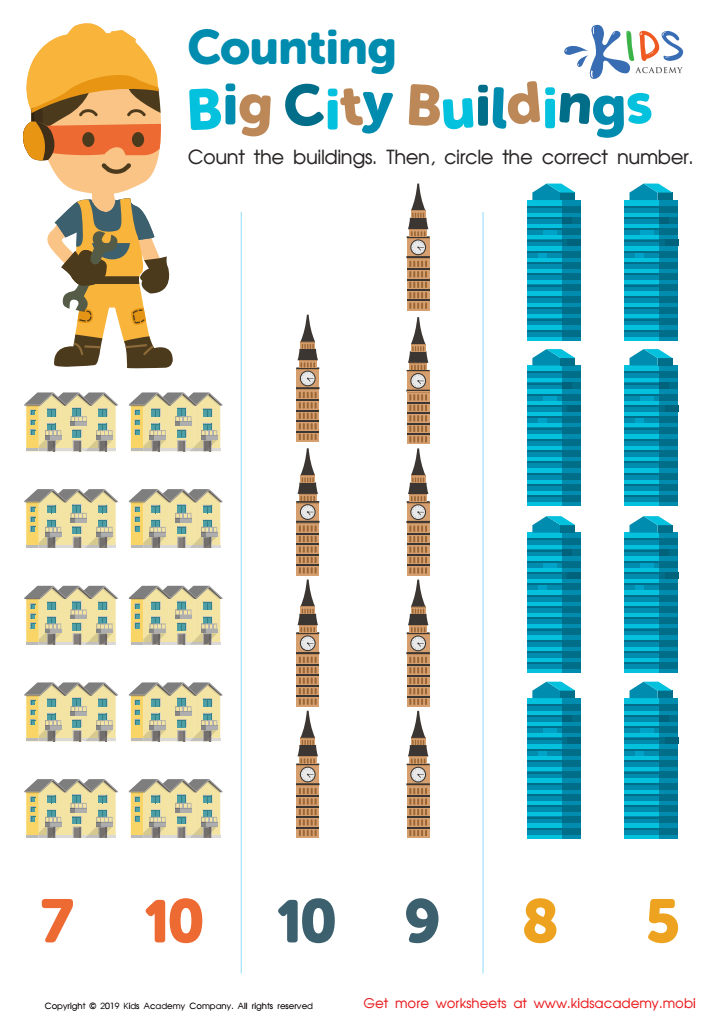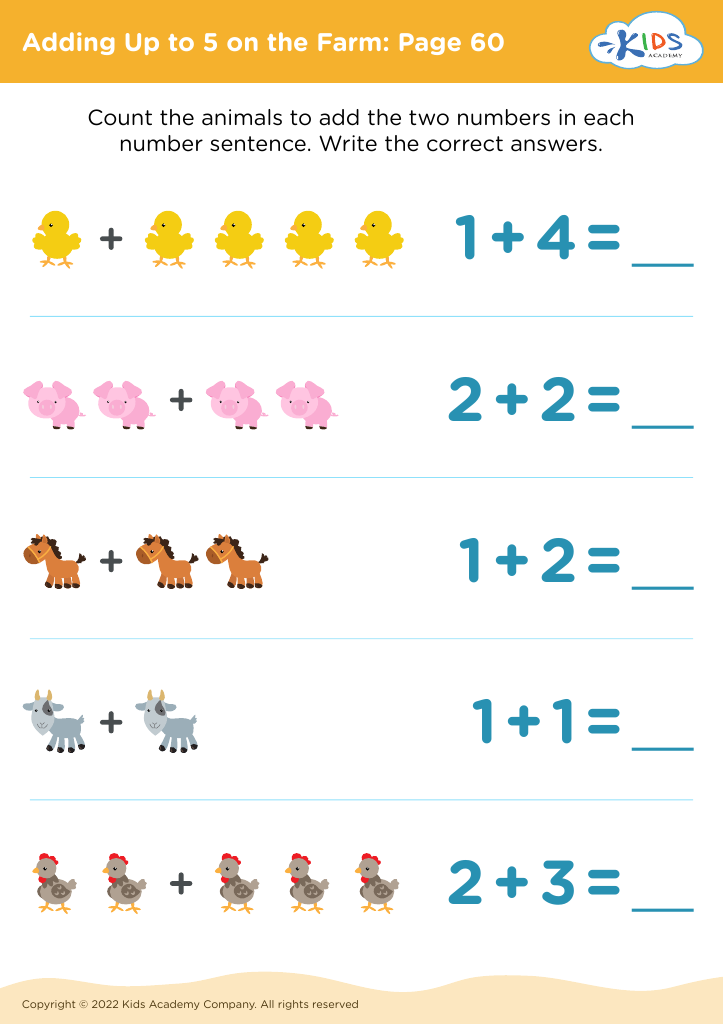Understanding Quantities Math Worksheets for Ages 4-8 - Page 3
50 filtered results
-
From - To


Counting Big City Buildings Worksheet
Understanding quantities in math is crucial for children aged 4-8, as it lays the foundation for their future mathematical success and everyday problem-solving skills. During these formative years, children are developing their cognitive abilities, and grasping the concept of quantities helps them understand relationships with numbers, shapes, and patterns. When children learn to recognize, compare, and manipulate different quantities, they cultivate critical thinking, logical reasoning, and spatial awareness.
Teachers and parents play a pivotal role in fostering these skills, as supportive environments nurture curiosity and intrinsic motivation to explore math. Encouraging activities such as counting objects, sorting by size, or measuring during cooking can make learning about quantities engaging and fun. Furthermore, these skills not only contribute to academic achievement but also empower children in real-life situations, such as budgeting allowances or sharing with friends.
Investing time and resources into developing youngsters' understanding of quantities promotes mathematical literacy and confidence. Teachers can implement hands-on, play-based learning strategies, while parents can reinforce these lessons at home. Ultimately, a strong foundation in understanding quantities equips children with the skills they need to navigate and succeed in an increasingly math-driven world.

 Assign to My Students
Assign to My Students


















